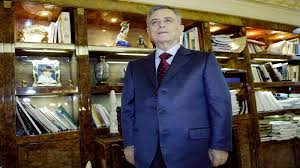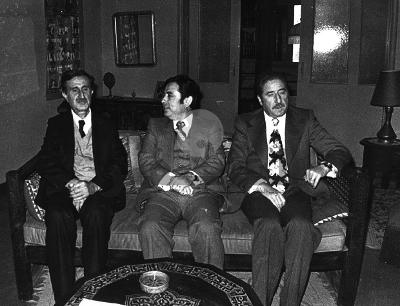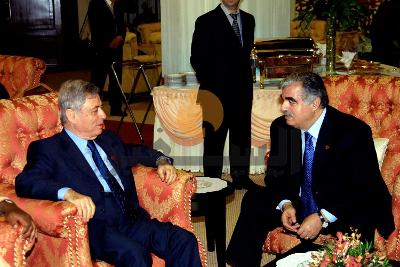Former Syrian Vice President Abdel Halim Khaddam emphasized that Assad’s insistence on the idea of inheriting power from his brother Rifat to his son Basil and then Bashar marked the beginning of Assad’s rule crumbling in Syria. He questioned the notion of turning the country into a hereditary legacy for one’s own son, asking, “How can you transform a country into a dynasty for your offspring?” While acknowledging his involvement in the corrupt and authoritarian regime, he clarified that it did not imply his direct involvement in corruption.
In an exclusive interview with the Saudi newspaper “Kadaz,” Khaddam expressed his belief that the Syrian people are an integral part of the Arab world. He emphasized the necessity of finding a formula encompassing all Arab countries, be it political, economic, or security-oriented, to strengthen any individual Arab nation. He further clarified that he never participated in political assassination cases alongside the late Syrian President Hafez al-Assad or his son Bashar al-Assad. He disavowed responsibility for the regime’s crimes against the people or any political assassinations, asserting that he bore a moral responsibility solely due to his affiliation with the regime.
Khaddam described the precarious nature of his circumstances, stating, “The situation was a matter of life or death. One had to choose between remaining silent and preserving their life or speaking out and expressing their opinion openly, which would result in lifelong imprisonment at the very least. This was the lesser evil, provided one did not fall victim to stray bullets of unknown origin.”
Challenging anyone who accused him of corruption, Khaddam demanded conclusive evidence from the regime. He insisted on the establishment of an impartial committee, preferably international and outside Syria, to investigate these allegations. Should his involvement be proven, he expressed readiness to face trial.
Highlighting the unparalleled nature of the Al-Assad regime, Khaddam described the system of corruption under Assad, both father and son, as distinct from any other system of corruption worldwide. Living under the Assad regime, according to him, meant enduring constant bitterness, remaining silent, losing one’s ability to empathize and consider the public interest, or speaking out and risking imprisonment or even assassination if fortunate enough to avoid it.



